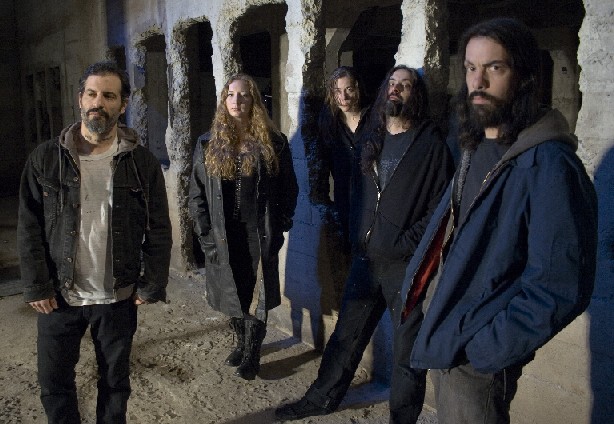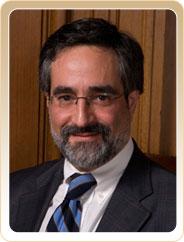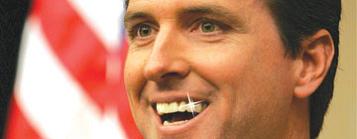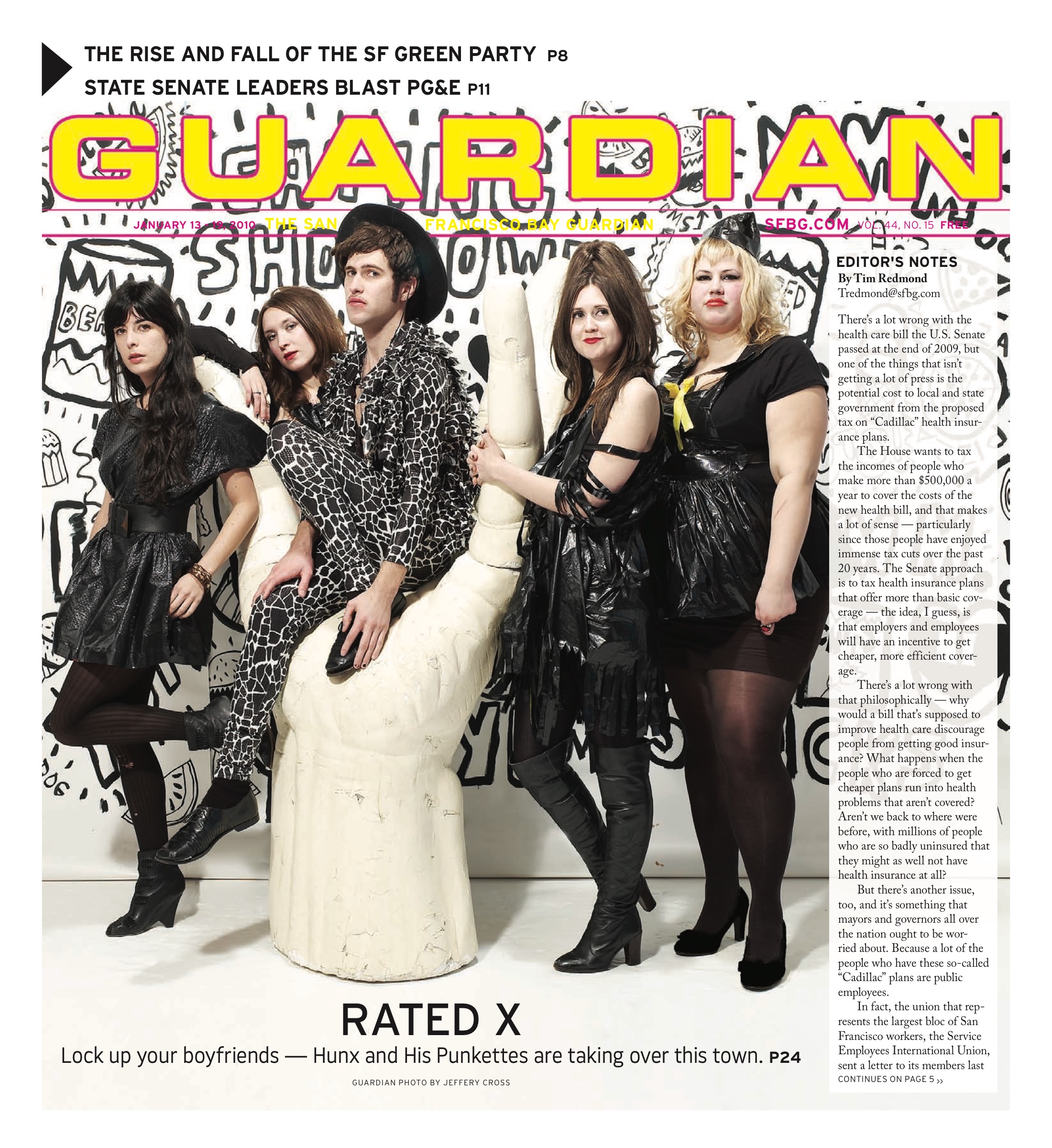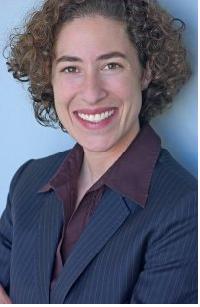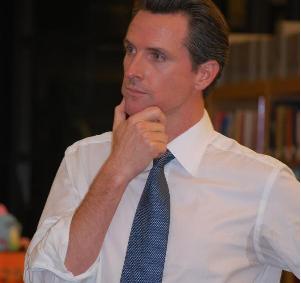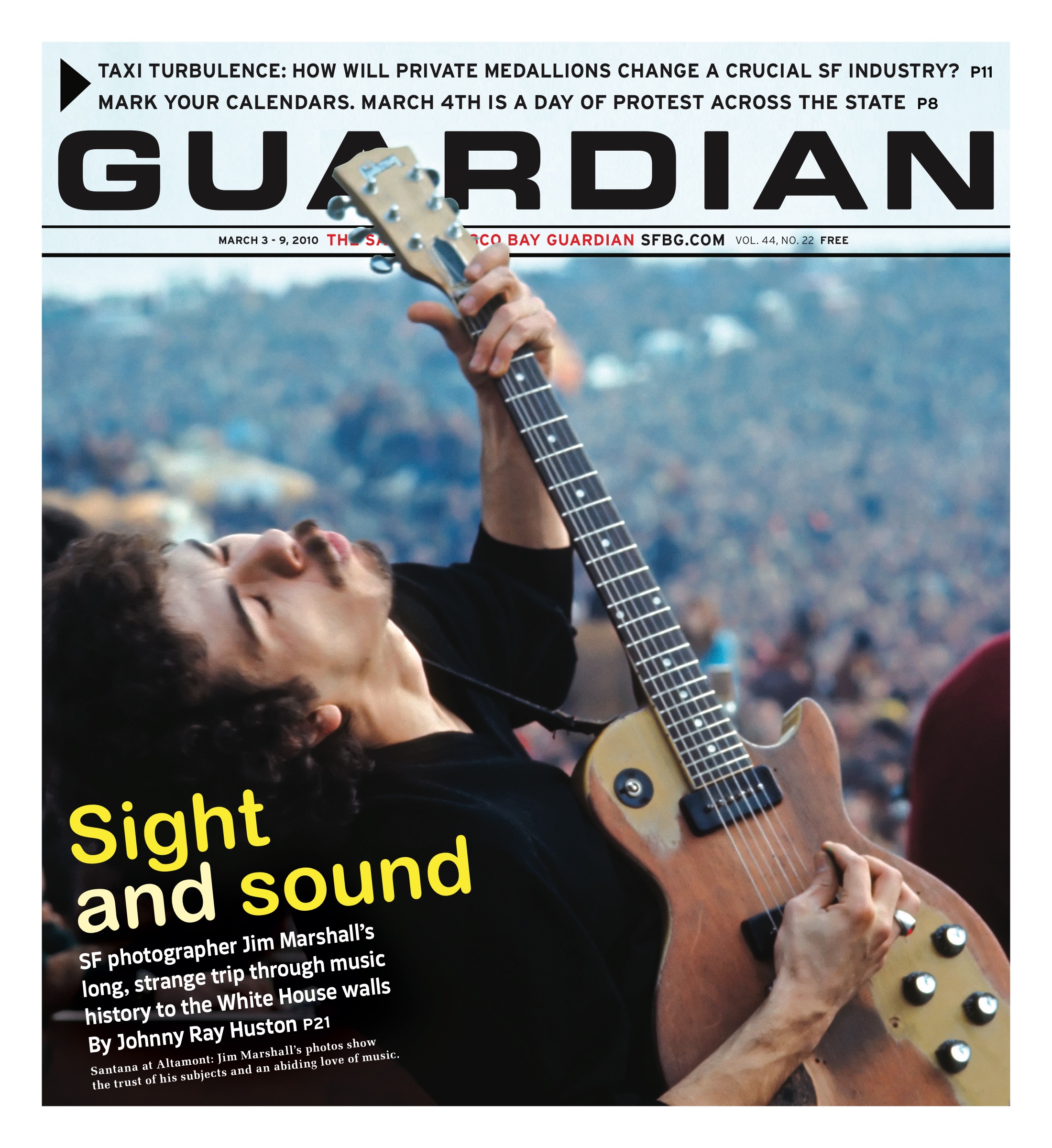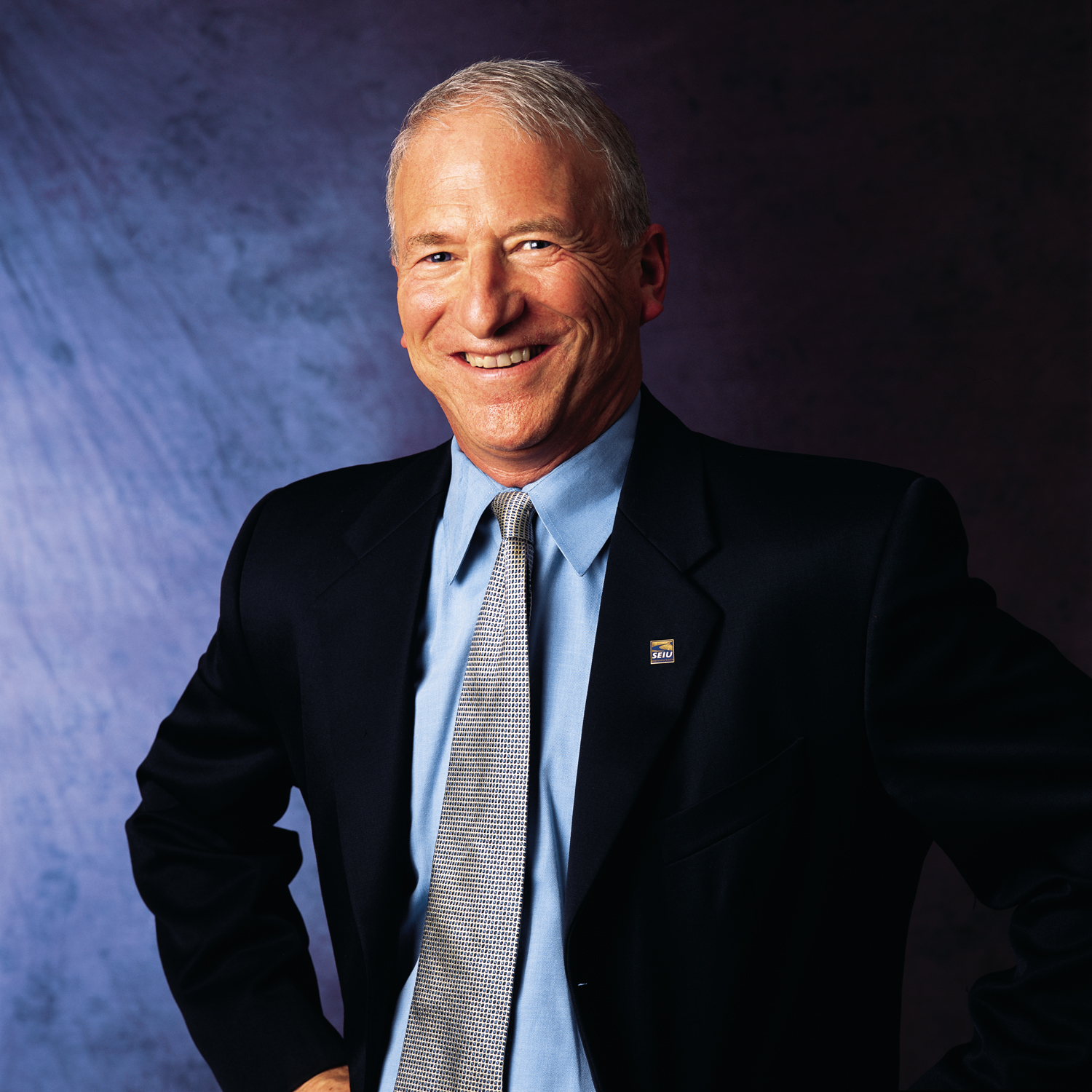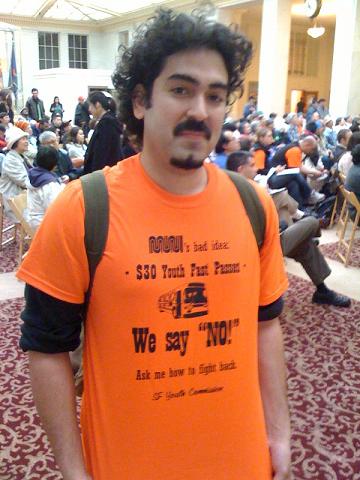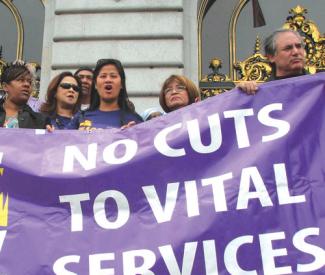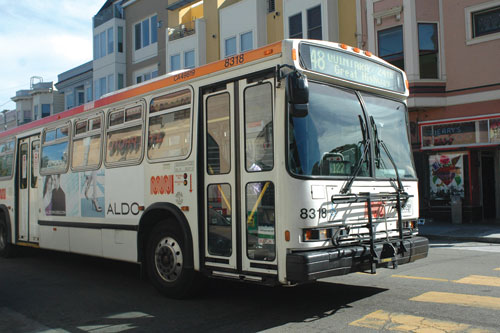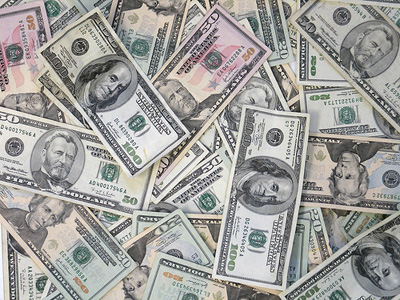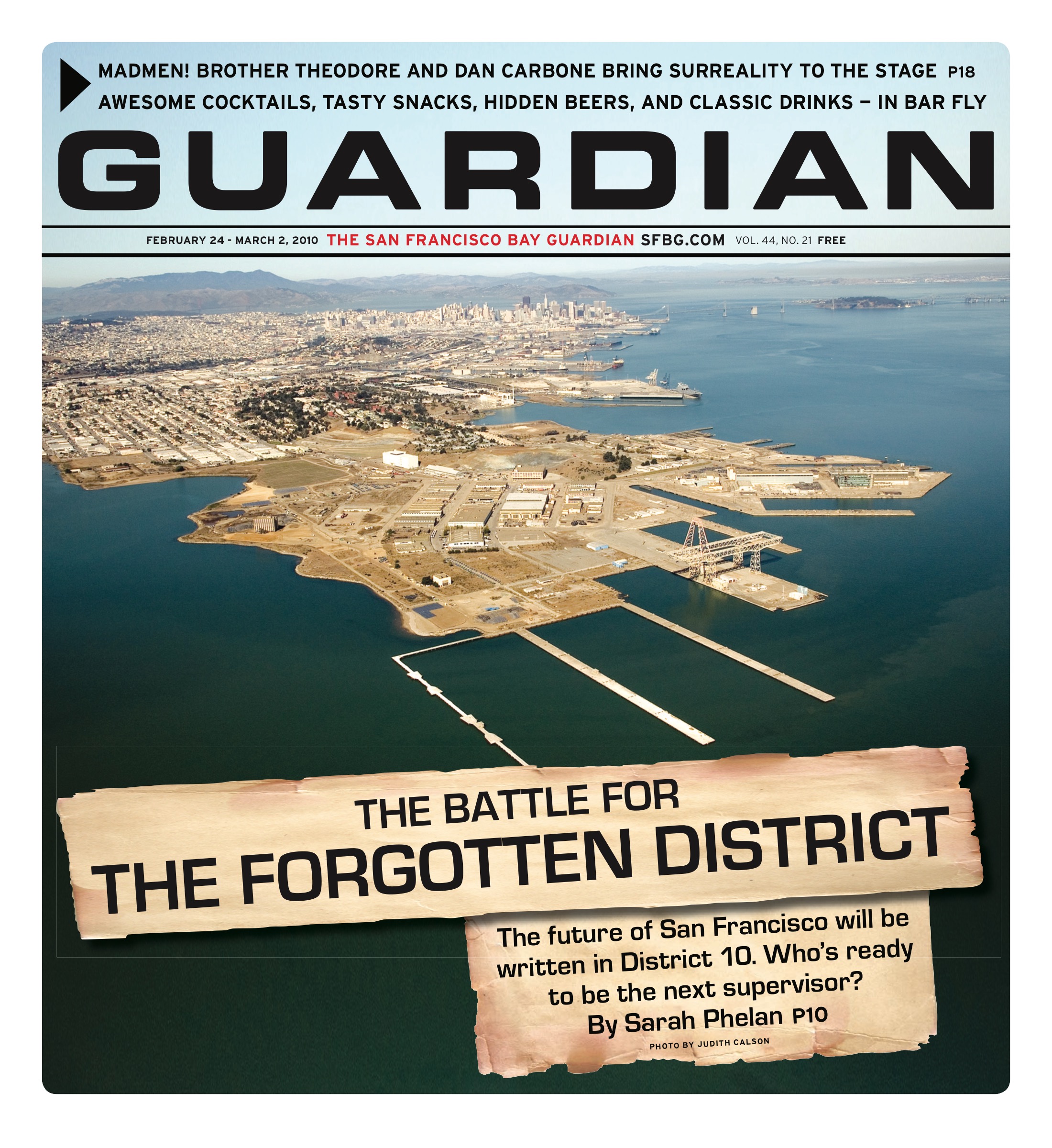Music listings are compiled by Paula Connelly and Cheryl Eddy. Since club life is unpredictable, it’s a good idea to call ahead to confirm bookings and hours. Prices are listed when provided to us. Submit items at listings@sfbg.com.
WEDNESDAY 3
ROCK/BLUES/HIP-HOP
Backyard Tire Fire, Arcadio Hotel Utah. 9pm, $10.
Jello Biafra and the Guantanamo School of Medicine, Fracas, Abu Ghraib Bottom of the Hill. 9pm, $12.
Big John Bates and the Voodoo Dollz, Quarter Mile Combo, Reverend Deadeye Thee Parkside. 8pm, $7.
For Fear the Hearts of Men Are Failing, Cousin Chris Show, Jamie Wong El Rio. 8pm, $5.
Generalissimo, Cartographer, Assistant Cobra Elbo Room. 9pm, $7.
Guitar Shorty Biscuits and Blues. 8pm, $15.
La Corde, Stirling Says, Only Sons Hemlock Tavern. 9pm, $6.
Jason Movrich Abbey Tavern, 4100 Geary, SF; (415) 221-7767. 9pm, free.
Phantogram Rickshaw Stop. 8pm, $10.
Snoop Dogg Fillmore. 8pm, $55.
*Alan Toussaint Great American Music Hall. 8pm, $35.
FOLK/WORLD/COUNTRY
Bluegrass Country Jam Plough and Stars. 9pm.
Faye Blais, Sarah Burton Café Royale, 800 Post, SF; (415) 441-4099. 8pm, free.
DANCE CLUBS
Afreaka! Attic, 3336 24th St; souljazz45@gmail.com. 10pm, free. Psychedelic beats from Brazil, Turkey, India, Africa, and across the globe with MAKossa.
Booty Call Q-Bar, 456 Castro; www.bootycallwednesdays.com. 9pm. Juanita Moore hosts this dance party, featuring DJ Robot Hustle.
Hands Down! Bar on Church. 9pm, free. With DJs Claksaarb, Mykill, and guests spinning indie, electro, house, and bangers.
Hump Night Elbo Room. 9pm, $5. The week’s half over – bump it out at Hump Night!
Jam Wednesday Infusion Lounge. 10pm, free. DJ Slick Dee.
Mary-Go-Round LookOut, 3600 16th St., SF; (415) 431-0306. 10pm, $5. A weekly drag show with hosts Cookie Dough, Pollo Del Mar, and Suppositori Spelling.
RedWine Social Dalva. 9pm-2am, free. DJ TophOne and guests spin outernational funk and get drunk.
Respect Wednesdays End Up. 10pm, $5. Rotating DJs Daddy Rolo, Young Fyah, Irie Dole, I-Vier, Sake One, Serg, and more spinning reggae, dancehall, roots, lovers rock, and mash ups.
Synchronize Il Pirata, 2007 16th St.; (415) 626-2626. 10pm, free. Psychedelic dance music with DJs Helios, Gatto Matto, Psy Lotus, Intergalactoid, and guests.
Yoruba Dance Sessions Bacano! Som., 2925 16th St., SF; (415) 558-8521. 9pm, free. With resident DJ Carlos Mena and guests spinning afro-deep-global-soulful-broken-techhouse.
THURSDAY 4
ROCK/BLUES/HIP-HOP
Big Light, Everest, Guns for San Sebastian Independent. 8pm, $14.
Chauncey Evans Quintet Coda. 9pm, $7.
Dashing Suns, Sunbeam Rd. Adobe Books, 3166 16th St, SF; http://adobebooksbackroomgallery.blogspot.com. 7pm, free.
Lloyd Gregory Biscuits and Blues. 8pm, $15.
Gun and Doll Show, Pollux Rickshaw Stop. 8pm, $20. Benefit for the George Mark Children’s House.
*Hunx and His Punkettes, Splinters, Magic Bullets Amnesia. 9pm, $7.
Midlake, Matthew and the Arrogant Sea Great American Music Hall. 9pm, $18.
Ash Reiter, Tippy Canoe and Mikie Lee Prasad, Anna Ash Hemlock Tavern. 9pm, $6.
*Saviours, Lecherous Gaze, Futur Skullz Eagle Tavern. 10pm, $8.
Rocky Votolato, Adam Stephens, Tin Can Notes Bottom of the Hill. 9pm, $14.
Veil Veil Vanish Popscene at 330 Ritch. 10pm.
JAZZ/NEW MUSIC
"Other Minds Festival of New Music" Kanbar Hall, Jewish Community Center of San Francisco, 3200 California, SF; www.otherminds.org. 8pm, $35.
Poncho Sanchez Band with Nicholas Payton Yoshi’s San Francisco. 8 and 10pm, $16-24.
FOLK/WORLD/COUNTRY
Circle R Boys Atlas Café. 8pm, free.
Heather Combs, Matthew Hansen, Dave Gleason Hotel Utah. 8pm, $8.
Shana Morrison Café du Nord. 8pm, $15.
Shannon Céilí Band Plough and Stars. 9pm.
Oliver Rajamani Ensemble Swedish American Hall (upstairs from Café du Nord). 8pm, $20.
DANCE CLUBS
Afrolicious Elbo Room. 9:30pm, $5-6. DJs Pleasuremaker and Señor Oz spin Afrobeat, Tropicália, electro, samba, and funk.
Caribbean Connection Little Baobab, 3388 19th St; 643-3558. 10pm, $3. DJ Stevie B and guests spin reggae, soca, zouk, reggaetón, and more.
Club Jammies Edinburgh Castle. 10pm, free. DJs EBERrad and White Mice spinning reggae, punk, dub, and post punk.
Drop the Pressure Underground SF. 6-10pm, free. Electro, house, and datafunk highlight this weekly happy hour.
Electric Feel Lookout. 9pm, $2. With DJs subOctave and Blondie K spinning indie music videos.
Funky Rewind Skylark. 9pm, free. DJ Kung Fu Chris, MAKossa, and rotating guest DJs spin heavy funk breaks, early hip-hop, boogie, and classic Jamaican riddims.
Good Foot Yoruba Dance Sessions Bacano! Som., 2925 16th St., SF; (415) 558-8521. 9pm, free. A James Brown tribute with resident DJs Haylow, A-Ron, and Prince Aries spinning R&B, Hip hop, funk, and soul.
Heat Icon Ultra Lounge. 10pm, free. Hip-hop, R&B, reggae, and soul.
Holy Thursday Underground SF. 10pm, $5. Bay Area electronic hip hop producers showcase their cutting edge styles monthly.
Kick It Bar on Church. 9pm. Hip-hop with DJ Jorge Terez.
Koko Puffs Koko Cocktails, 1060 Geary; 885-4788. 10pm, free. Dubby roots reggae and Jamaican funk from rotating DJs.
Lacquer Beauty Bar. 10pm-2am, free. DJs Mario Muse and Miss Margo bring the electro.
Love Them Phishes DNA Lounge. 8pm, $15-20. Gypsy punk with Alxndr, Bombgoddess, Ra-So, and Globalruckus.
Mestiza Bollywood Café, 3376 19th St., SF; (415) 970-0362. 10pm, free. Showcasing progressive Latin and global beats with DJ Juan Data.
Peaches Skylark, 10pm, free. With an all female DJ line up featuring Deeandroid, Lady Fingaz, That Girl, and Umami spinning hip hop.
Popscene 330 Rich. 10pm, $10. Rotating DJs spinning indie, Britpop, electro, new wave, and post-punk.
Represent Icon Lounge. 10pm, $5. With Resident DJ Ren the Vinyl Archaeologist and guest. Rock Candy Stud. 9pm-2am, $5. Luscious Lucy Lipps hosts this electro-punk-pop party with music by ReXick.
Solid Club Six. 9pm, $5. With resident DJ Daddy Rolo and rotating DJs Mpenzi, Shortkut, Polo Mo’qz and Fuze spinning roots, reggae, and dancehall.
Studio SF Triple Crown. 9pm, $5. Keeping the Disco vibe alive with authentic 70’s, 80’s, and current disco with DJs White Girl Lust, Ken Vulsion, and Sergio.
FRIDAY 5
ROCK/BLUES/HIP-HOP
Barcelona, Mata Leon, Lia Rose Slim’s. 9pm, $15.
Barn Owl, Carlton Melton, Electric Jellyfish Hemlock Tavern. 9:30pm, $7.
Diego’s Umbrella, Yung Mars, Funky C Café du Nord. 9:30pm, $12.
Flexx Bronco, Corruptors, Spitting Cobras, All Bets on Death Bottom of the Hill. 9pm, $10.
Galactic feat. Cyril Neville and Big Freedia Fillmore. 9pm, $29.50.
Joe Henry, Dayna Stephens Great American Music Hall. 9pm, $20.
Hightower, Lozen, Sugar Sugar Sugar Pissed Off Pete’s, 4528 Mission, SF; www.pissedoffpetes.com. 10pm, $5.
*Hillstomp, Luke Franks, Black Crown Stringband Rickshaw Stop. 8:30pm, $12.
*No Bunny, TV Ghost, Outdoorsmen, Mom Thee Parkside. 9pm, $8.
Jackie Payne and Steve Edmonson Band Biscuits and Blues. 8 and 10pm, $20.
Melonumba, Cloverleaf Drive DNA Lounge. 5:30pm, $12.
Stockholm Syndrome, These United States Independent. 9pm, $25.
Tremor Low, Alright Class, Photons, Grand Atlantic Hotel Utah. 9pm, $6.
JAZZ/NEW MUSIC
Audium 9 1616 Bush, SF; (415) 771-1616. 8:30pm, $15.
Black Market Jazz Orchestra Top of the Mark. 9pm, $10.
Eric Kurtzrock Trio Ana Mandara, Ghirardelli Square, 891 Beach, SF; (415) 771-6800. 8pm, free.
"Other Minds Festival of New Music" Kanbar Hall, Jewish Community Center of San Francisco, 3200 California, SF; www.otherminds.org. 8pm, $35.
Poncho Sanchez Band with Nicholas Payton Yoshi’s San Francisco. 8 and 10pm, $20-28.
Kally Price Revolution Café, 3248 22nd St, SF; (415) 642-0474. 8:45pm, free.
SFJAZZ Collective Palace of Fine Arts Theatre, 3301 Lyon, SF; www.sfjazz.org. 8pm, $25-60.
Shotgun Wedding Symphony Coda. 10pm, $10.
FOLK/WORLD/COUNTRY
Audiodub, Kapakahi Elbo Room. 10pm, $12.
Jarrod Gorbel Swedish American Hall (upstairs from Café du Nord). 7:30pm, $12.
Prasant Radhakrishnan’s VidyA Red Poppy Art House. 8pm, $15.
Quinn DeVeaux and the Blue Beat Review Plough and Stars. 9pm.
DANCE CLUBS
Activate! Lookout, 3600 16th St; (415) 431-0306. 9pm, $3. Face your demigods and demons at this Red Bull-fueled party.
Bar on Church 9pm. Rotating DJs Zax, Zhaldee, and Nuxx.
Deeper 222 Hyde, 222 Hyde, SF; (415) 345-8222. 9pm, $10. With rotating DJs spinning dubstep and techno.
Dirty Rotten Dance Party Madrone Art Bar. 9pm, $5. With DJs Morale, Kap10 Harris, and Shane King spinning electro, bootybass, crunk, swampy breaks, hyphy, rap, and party classics.
Exhale, Fridays Project One Gallery, 251 Rhode Island; (415) 465-2129. 5pm, $5. Happy hour with art, fine food, and music with Vin Sol, King Most, DJ Centipede, and Shane King.
Fat Stack Fridays Koko Cocktails, 1060 Geary, SF; (415) 885-4788. 10pm, free. With rotating DJs Romanowski, B-Love, Tomas, Toph One, and Vinnie Esparza.
Gay Asian Paradise Club Eight, 1151 Folsom, SF; www.eightsf.com. 9pm, $8. Featuring two dance floors playing dance and hip hop, smoking patio, and 2 for 1 drinks before 10pm.
Good Life Fridays Apartment 24, 440 Broadway, SF; (415) 989-3434. 10pm, $10. With DJ Brian spinning hip hop, mashups, and top 40.
Hot Chocolate Milk. 9pm, $5. With DJs Big Fat Frog, Chardmo, DuseRock, and more spinning old and new school funk.
Look Out Weekend Bambuddha Lounge. 4pm, free. Drink specials, food menu and resident DJs White Girl Lust, Swayzee, Philie Ocean, and more.
M4M Fridays Underground SF. 10pm-2am. Joshua J and Frankie Sharp host this man-tastic party.
Rockabilly Fridays Jay N Bee Club, 2736 20th St., SF; (415) 824-4190. 9pm, free. With DJs Rockin’ Raul, Oakie Oran, Sergio Iglesias, and Tanoa "Samoa Boy" spinning 50s and 60s Doo Wop, Rockabilly, Bop, Jive, and more.
Strangelove Cat Club, 1190 Folsom, SF; (415) 703-8965. 9pm, $6. With DJs Tomas Diablo, Lowlife, Fact50, and Death Boy spinning goth and industrial.
SATURDAY 6
ROCK/BLUES/HIP-HOP
Appleseed Cast, Dreamend Bottom of the Hill. 10pm, $14.
Badstrip, Pins of Light, Space Vacation Thee Parkside. 9pm, free.
Mike Beck and the Bohemian Saints Riptide. 9pm, free.
Mike Doughty, Christina Courtin Slim’s. 9pm, $22.
Galactic feat. Cyril Neville and Big Freedia Fillmore. 9pm, $29.50.
Little Teeth, Hermit Thrushes, Woom Hemlock Tavern. 9pm, $7.
McCabe and Mrs. Miller Makeout Room. 7pm.
Natron Blue, FishBiteFish, Bro Hotel Utah. 9pm, $7.
Elliot Randall and the Deadmen, Famous, Cyndi Harvell Café du Nord. 9pm, $12.
Stockholm Syndrome, These United States Independent. 9pm, $25.
Joe Louis Walker Biscuits and Blues. 8 and 10pm, $22.
JAZZ/NEW MUSIC
Audium 9 1616 Bush, SF; (415) 771-1616. 8:30pm, $15.
Eric Kurtzrock Trio Ana Mandara, Ghirardelli Square, 891 Beach, SF; (415) 771-6800. 8pm, free.
George Cole Quintet and Fishtank Ensemble Noe Valley Ministry, 1021 Sanchez, SF; www.noevalleymusicseries.com. 8:15pm, $20.
Tim Nunn and Blake McGee Meridian Gallery, 535 Powell, SF; www.meridiangallery.org. 8pm, $10.
"Other Minds Festival of New Music" Kanbar Hall, Jewish Community Center of San Francisco, 3200 California, SF; www.otherminds.org. 8pm, $35.
Poncho Sanchez Band with Nicholas Payton Yoshi’s San Francisco. 8 and 10pm, $28.
Rev Allstars Revolution Café, 3248 22nd St, SF; (415) 642-0474. 8:45pm, free.
Ricardo Scales Top of the Mark. 9pm, $15.
FOLK/WORLD/COUNTRY
Brent Amaker and the Rodeo, Apache Thunderbolt Amnesia. 9pm, $7.
George Cole and the Fishtank Ensemble Noe Valley Ministry, 1021 Sanchez, SF; (415) 454-5238. 8:15pm, $22.
Dust Bowl Cavaliers vs Misisipi Rider Plough and Stars. 9pm.
Qadim Ensemble Red Poppy Art House. 8pm, $15-$20.
Shackleton, Eskmo, Eprom, Kush Arora Darkroom, Club Six. 10pm, $15. Playing live bass music.
DANCE CLUBS
Bar on Church 9pm. Rotating DJs Foxxee, Joseph Lee, Zhaldee, Mark Andrus, and Niuxx.
Debaser Knockout. 11pm, $5. Wear your flannel and get in free before 11pm to this party, where DJ Jamie Jams and Emdee play alternative hits from the 1990s.
Everlasting Bass 330 Ritch. 10pm, $5-10. Bay Area Sistah Sound presents this party, with DJs Zita and Pam the Funkstress spinning hip-hop, soul, funk, reggae, dancehall, and club classics.
Fire Corner Koko Cocktails, 1060 Geary; 885-4788. 9:30pm, free. Rare and outrageous ska, rocksteady, and reggae vinyl with Revival Sound System and guests.
Gemini Disco Underground SF. 10pm, $5. Disco with DJ Derrick Love and Nicky B. spinning deep disco.
HYP Club Eight, 1151 Folsom, SF; www.eightsf.com. 10pm, free. Gay and lesbian hip hop party, featuring DJs spinning the newest in the top 40s hip hop and hyphy.
*J-Boogie’s Dubtronic Science with Skins and Needles featuring DJ Jeph and Max MacVeety Coda. 10pm, $10.
Kontrol Endup, 401 6th St., SF; (415) 541-9422. 10pm, $20. With resident DJs Alland Byallo, Craig Kuna, Sammy D, and Nikola Baytala spinning minimal techno and avant house.
Leisure Paradise Lounge. 10pm, $7. DJs Omar, Aaron, and Jet Set James spinning classic britpop, mod, 60s soul, and 90s indie.
New Wave City DNA Lounge. 9pm, $7-12. "Ladies of the 80s" dance party with Skip and Shindog.
Pure Behrouz Mighty. 10pm, $15. With DJs Behrouz, Julius Papp, and Rooz spinning house.
Rebel Girl Rickshaw Stop. 10pm, $5. "Electroindierockhiphop" and 80s dance party for dykes, bois, femmes, and queers with DJ China G and guests.
Saturday Night Soul Party Elbo Room. 10pm, $10. Sixties soul with DJs Lucky, Phengren Oswald, and Paul Paul.
So Special Club Six. 9pm, $5. DJ Dans One and guests spinning dancehall, reggae, classics, and remixes.
Social Club LookOut, 3600 16th St., SF; (415) 431-0306. 9pm. Shake your money maker with DJs Lee Decker and Luke Fry.
Soundscape Vortex Room, 1082 Howard, SF. With DJs C3PLOS, Brighton Russ, and Nick Waterhouse spinning Soul jazz, boogaloo, hammond grooves, and more.
Spirit Fingers Sessions 330 Ritch. 9pm, free. With DJ Morse Code and live guest performances.
SUNDAY 7
ROCK/BLUES/HIP-HOP
Abe Vigoda, Lovvers, High Castle Bottom of the Hill. 9pm, $10.
"Battle of the Bands" DNA Lounge. 5:30pm, $10-12. With High Like Five, Sol, Supernaculum, Animojams, and more.
Black Dahlia Murder, Obscura, Augery, Hatesphere Slim’s. 7pm, $15.
Killswitch Engage, Devil Wears Prada, Dark Tranquillity Warfield. 7:30pm, $32.
Lindsay Mac Band, Natalia Zuckerman Hotel Utah. 8pm, $12.
Leslie and the Lys, Christopher the Conquered, Planet Booty Rickshaw Stop. 8pm, $14.
*Shrinebuilder, Harvestmen, A Storm of Light Independent. 8pm, $17.
Two Dollars Out the Door, Birthday Suits, Rank/Xerox Hemlock Tavern. 9pm, $5.
JAZZ/NEW MUSIC
Kate McGarry Trio with Keith Granz and Clarence Penn Swedish American Hall (upstairs from Café du Nord). 7pm, $25.
Le Jazz Hot Café Royale, 800 Post, SF; (415) 441-4099. 6pm, free.
Poncho Sanchez Band with Nicholas Payton Yoshi’s San Francisco. 5 and 7pm, $5-28.
FOLK/WORLD/COUNTRY
Shane Cooley Kimo’s. 6pm, $5.
Frank French Sherman and Clay, 647 Mission, SF; (415) 543-1888. 4pm, free.
Raul Malo Café du Nord. 8:30pm, $20.
"Te Gusto Musical" Coda. 8pm, $10. With Hector Lugo and Mixta Criolla.
Linda Tillery and the Cultural Heritage Choir, Eric Bibb Great American Music Hall. 8pm, $21.
Quin and friends Plough and Stars. 9pm.
Wooden Fish Ensemble Old First Concerts, 1751 Sacramento, SF; (415) 474-1608. 4pm, $14-$17. Celebrating the music of Hyo-shin Na.
DANCE CLUBS
Afterglow Nickies, 466 Haight, SF; (415) 255-0300. An evening of mellow electronics with resident DJs Matt Wilder, Mike Perry, Greg Bird, and guests.
DiscoFunk Mashups Cat Club. 10pm, free. House and 70’s music.
Dub Mission Elbo Room. 9pm, $6. Dub, roots, and classic dancehall with DJ Sep, Vinnie Esparza, and guest Selector Shockman.
Gloss Sundays Trigger, 2344 Market, SF; (415) 551-CLUB. 7pm. With DJ Hawthorne spinning house, funk, soul, retro, and disco.
Good Clean Fun LookOut, 3600 16th St., SF; (415) 431-0306. 3pm, $2. With drink specials, DJs and tasty food.
Honey Soundsystem Paradise Lounge. 8pm-2am. "Dance floor for dancers – sound system for lovers." Got that?
Jock! Lookout, 3600 16th St; 431-0306. 3pm, $2. This high-energy party raises money for LGBT sports teams.
Kick It Bar on Church. 9pm. Hip-hop with DJ Zax.
Lowbrow Sunday Delirium. 1pm, free. DJ Roost Uno and guests spinning club hip hop, indie, and top 40s.
Religion Bar on Church. 3pm. With DJ Nikita.
Stag AsiaSF. 6pm, $5. Gay bachelor parties are the target demo of this weekly erotic tea dance.
MONDAY 8
ROCK/BLUES/HIP-HOP
Anuhea and the Green Band, Sage Broadway Studios. 8pm, $40.
Blank Tapes, Mystery Lights, Nectarine Pie, Manhattan Murder Mystery Elbo Room. 9pm, $6.
Delta Spirit, We Barbarians, Elephant Micah Bottom of the Hill. 9pm, $12.
Dirty Heads, Simpkin Project, Pacific Dub Slim’s. 8pm, $15.
Amber Rubarth, Jim Bianco, Ryan Auffenberg Café du Nord. 9:30pm, $12.
DANCE CLUBS
Bacano! Som., 2925 16th St., SF; (415) 558-8521. 9pm, free. With resident DJs El Kool Kyle and Santero spinning Latin music.
Black Gold Koko Cocktails, 1060 Geary; 885-4788. 10pm-2am, free. Senator Soul spins Detroit soul, Motown, New Orleans R&B, and more — all on 45!
Death Guild DNA Lounge. 9:30pm, $3-5. Gothic, industrial, and synthpop with Decay, Joe Radio, and Melting Girl.
M.O.M. Madrone Art Bar. 6pm, free. With DJ Gordo Cabeza and guests playing all Motown every Monday.
Manic Mondays Bar on Church. 9pm. Drink 80-cent cosmos with Djs Mark Andrus and Dangerous Dan.
Monster Show Underground SF. 10pm, $5. Cookie Dough and DJ MC2 make Mondays worth dancing about, with a killer drag show at 11pm.
Network Mondays Azul Lounge, One Tillman Pl; www.inhousetalent.com. 9pm, $5. Hip-hop, R&B, and spoken word open mic, plus featured performers.
Spliff Sessions Tunnel Top. 10pm, free. DJs MAKossa, Kung Fu Chris, and C. Moore spin funk, soul, reggae, hip-hop, and psychedelia on vinyl.
TUESDAY 9
ROCK/BLUES/HIP-HOP
Black Rebel Motorcycle Club, Whigs Slim’s. 8pm, $30.
*Cave Singers, Dutchess and the Duke, Moondoggies Independent. 8pm, $14.
Clientele, Wooden Birds Great American Music Hall. 8pm, $15.
Extra Life, Ora Corgan, Chelsea Wolfe, Neighbors Hemlock Tavern. 9pm, $7.
Dominique Leone, 3 Leafs, William Winant Amnesia. 7pm, $8.
Fromagique Elbo Room. 9pm, $8. Live band and burlesque show.
Little Boots, Dragonette, Class Actress Fillmore. 8pm, $20.
Jared Mees and the Grown Children, Rock Cookie Bottom Grant and Green. 9pm, free.
Holly Miranda Café du Nord. 9:30pm, $10.
Sevendust, Drowning Pool, Digital Summer, Flood Regency Ballroom. 7:30pm, $27.
*Mike Watt and the Missingmen, Lite, Low Red Land Bottom of the Hill. 9pm, $12.
DANCE CLUBS
Eclectic Company Skylark, 9pm, free. DJs Tones and Jaybee spin old school hip hop, bass, dub, glitch, and electro.
La Escuelita Pisco Lounge, 1817 Market, SF; (415) 874-9951. 7pm, free. DJ Juan Data spinning gay-friendly, Latino sing-alongs but no salsa or reggaeton.
Share the Love Trigger, 2344 Market, SF; (415) 551-CLUB. 5pm, free. With DJ Pam Hubbuck spinning house.
Womanizer Bar on Church. 9pm. With DJ Nuxx.

